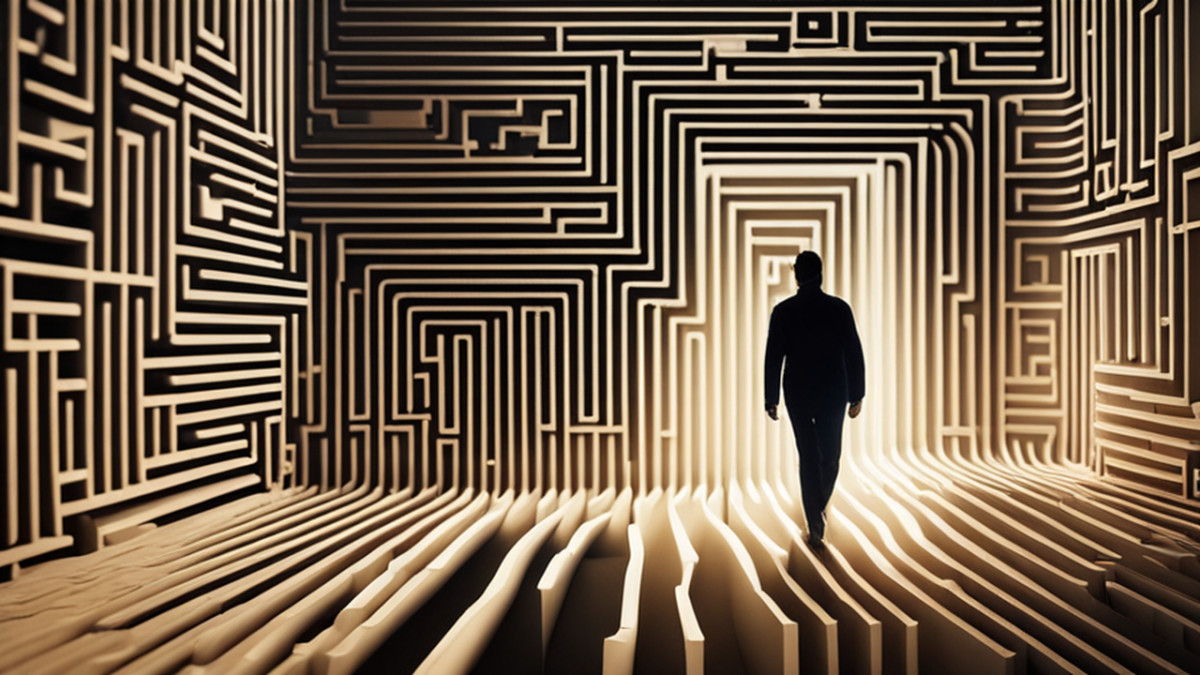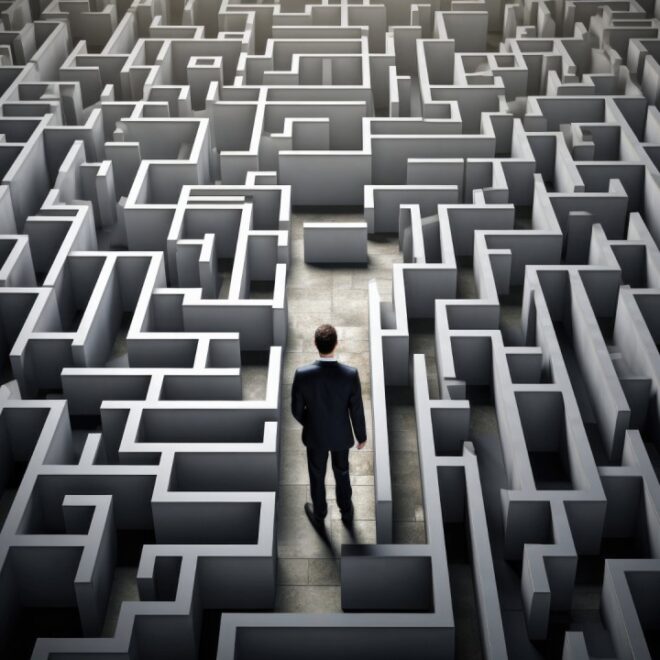What Depression is : Unraveling the Dark Maze
Depression is a mental health disorder causing persistent feelings of sadness and loss of interest. Depression is a common yet serious mood disorder that negatively affects how you feel, think, and handle daily activities.
It can lead to various emotional and physical problems and can impact a person’s ability to function at work or home. Understanding the causes, symptoms, and treatment options for depression is crucial for promoting mental well-being and seeking appropriate support when needed.
This article explores the concept of depression, its prevalence, potential triggers, and available therapeutic interventions to help individuals navigate this challenging condition effectively. Let’s delve deeper into the complexities of depression and its impact on individuals’ lives.

Credit: www.facebook.com
The Science Of Depression
Depression is a complex mental disorder characterized by persistent feelings of sadness and hopelessness. It affects how one thinks, feels, and handles daily activities. People with depression may experience physical symptoms like fatigue and changes in appetite. It’s important to seek professional help for proper diagnosis and treatment.
Depression, a mental health disorder affecting mood, impacts brain chemistry. Changes in neurotransmitters contribute to symptoms like sadness and hopelessness. The imbalance of serotonin and dopamine can influence emotions and behavior. Genetic predisposition and environmental factors also play a role in the development of depression. Various neurobiological factors contribute to the onset of depression. This includes brain structure, neural circuits, and hormonal regulation. Increased stress levels can also affect neuroplasticity in the brain. Understanding the science behind depression can aid in effective treatment and management of symptoms.

Credit: discover.hubpages.com
Types Of Depression
Depression can manifest in various types, including major depressive disorder, persistent depressive disorder, and seasonal affective disorder. These conditions bring about persistent feelings of sadness, hopelessness, and lack of interest in previously enjoyable activities. It is important for those experiencing symptoms of depression to seek professional help and support.
Major Depressive Disorder
Major Depressive Disorder is a common form of depression characterized by feelings of sadness, loss of interest or pleasure, changes in appetite, and difficulty sleeping. It can affect a person’s daily life, making it challenging to perform routine tasks or enjoy activities. Seeking professional help is essential for diagnosis and treatment.
Persistent Depressive Disorder
Persistent Depressive Disorder, also known as dysthymia, is a milder but long-lasting form of depression. It involves a depressed mood that lasts for at least two years, with periods of normal mood occurring intermittently. People with persistent depressive disorder may experience low self-esteem, fatigue, and poor concentration. Psychological therapy and lifestyle changes are often recommended to manage this type of depression.
Symptoms And Signs
Depression is a mental health condition that affects millions of people worldwide. It is important to recognize the symptoms and signs in order to seek appropriate help and support.
Emotional Symptoms
1. Persistent feelings of sadness and emptiness. 2. Loss of interest in activities once enjoyed. 3. Excessive guilt or feelings of worthlessness. 4. Irritability or mood swings. 5. Difficulty concentrating or making decisions. 6. Thoughts of self-harm or suicide.
Physical Symptoms
1. Changes in appetite and weight. 2. Fatigue and lack of energy. 3. Sleep disturbances, such as insomnia or excessive sleeping. 4. Generalized aches and pains. 5. Digestive issues and headaches. 6. Increased or decreased activity levels.
If you or someone you know is experiencing these symptoms, it is important to reach out to a healthcare professional for proper diagnosis and treatment. Remember, there is help and support available for individuals dealing with depression.

Credit: www.shutterstock.com
Risk Factors
Depression encompasses various risk factors, including genetics, life events, and brain chemistry imbalances. These factors can contribute to the development and exacerbation of depressive symptoms. Understanding these triggers is crucial in managing and treating depression effectively.
| Risk Factors: |
| Genetic Predisposition: Depression can be influenced by family history and genetic factors. |
| Environmental Triggers: Stressful events and trauma can contribute to the development of depression. |
Impact On Daily Life
Depression can have a profound impact on daily life, affecting relationships and work productivity. It can strain relationships with family, friends, and romantic partners. Depression often leads to withdrawal, difficulty expressing emotions, and low energy levels, making it challenging to maintain healthy connections. In the workplace, depression can hinder concentration, motivation, and problem-solving abilities.
Individuals with depression may find it harder to meet deadlines or perform at their best, which can affect their professional growth and job stability. Lack of interest and satisfaction in activities can lead to reduced productivity and the potential for increased absenteeism.
Recognizing these challenges is crucial in order to provide appropriate support and understanding to those experiencing depression. Encouraging open communication, seeking therapy or counseling, and creating a supportive work environment can help individuals manage their depression symptoms and improve their overall quality of life.
Treatment Options
Therapy: Talking to a therapist can help process emotions and develop coping strategies.
Medication: Antidepressants can be prescribed by a doctor to help manage symptoms.
Coping Strategies
Depression can be overwhelming, but coping strategies can help. Learn effective ways to manage symptoms and improve mental well-being.
| Self-Care Practices: Engage in activities that bring you joy and relaxation, such as meditation, yoga, or spending time in nature. Prioritize proper nutrition, exercise, and sufficient sleep to nurture your body and mind. |
| Support Systems: Share your feelings with trusted friends or family members. Seek help from a therapist or counselor to develop coping strategies. Join a support group to connect with others who understand your struggles. |
Breaking The Stigma
Depression is a common mental health disorder characterized by persistent feelings of sadness, hopelessness, and a lack of interest in activities. It affects people of all ages and backgrounds, often leading to a significant impact on daily life and overall well-being.
Education And Awareness
Educating ourselves and promoting awareness about depression is crucial in breaking the stigma surrounding this mental health condition. By understanding the symptoms, causes, and available treatment options, we can better support those struggling with depression and encourage them to seek help.
Supporting mental health initiatives is another essential step towards diminishing the stigma associated with depression. These initiatives work to improve access to mental healthcare, provide resources for individuals and their families, and promote conversations around mental well-being.
Together, through education, awareness, and support, we can foster a more compassionate and understanding society, ensuring that no one feels alone in their battle against depression.
Frequently Asked Questions For What Depression Is
What Is The True Meaning Of Depression?
Depression is a common mental health disorder that causes persistent sadness, loss of interest, and other emotional and physical symptoms. It can affect anyone, leading to difficulties in daily life and relationships. Professional help and treatment are necessary to manage depression effectively.
Why Do People Get Depressed?
People can get depressed due to genetic factors, brain chemistry imbalances, stress, trauma, and certain medical conditions.
What Are The Common Symptoms Of Depression?
Some common symptoms of depression include persistent sadness, loss of interest in activities, changes in appetite and sleep patterns, fatigue, difficulty concentrating, and thoughts of self-harm or suicide.
Is Depression A Serious Medical Condition?
Yes, depression is a serious medical condition that affects a person’s mood, thoughts, and behavior. It can interfere with daily activities, relationships, and overall quality of life. Seeking professional help is important for proper diagnosis and treatment.
Conclusion
Depression is a serious mental health issue that affects many. Seek help and support. It’s important to take care of your mental well-being. Remember, you are not alone in this journey. Stay connected and prioritize self-care. Together, we can overcome the challenges of depression.
